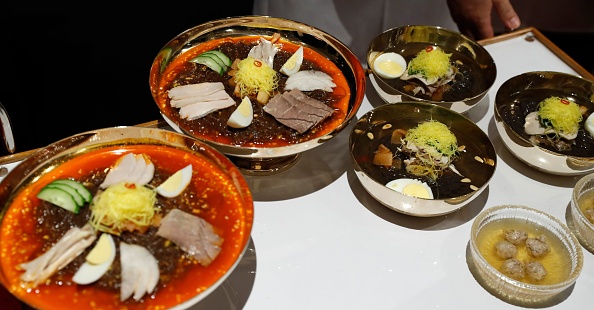
South Korean government is working on restricting the binge eating culture trending on social media. It is believed that the fad is leading to a rising number of obesity cases among Koreans.
Mukbang, is a popular online trend where individuals live stream themselves, binge eating large amounts of food in front of online spectators. Mukbang is believed to be about tasty meals and human connections making it one of a lucrative industry in Korea.
The extreme form of entertainment shows people devouring insanely huge proportions of food while talking to their viewers via a camera. This South Korean gluttony trend has gained popularity globally.
Due to its increasing recognition among the youth, the South Korean government is considering placing guidelines to restrict the spread of Mukbang culture. In a statement issued by the Ministry of Health and Welfare stated that "In 2019, the government will develop guidelines for the binge-eating media-eating media-TV and internet broadcasts- to improve eating behaviour and to build a monitoring system". This step comes as part of a wider anti-obesity campaign, developed by East Asian counties in response to an alarming rise in obesity rates. According to The Telegraph, 34.8% of South Koreans were classified as obese in 2016 which is seen as a huge rise since the recorded 26% in 1998.
: Spicy Ramen
: FRAN 프란 on Youtube pic.twitter.com/G6fDxgSddx— MUKBANG ASMR (@mukbanglife) October 26, 2018
The Mukbang trend started in South Korea earlier this decade, amassing a global reach within a short time frame. This move by the government is due to the popular culture inducing bad eating habits among the youngsters.
However, this step by the government has received slack from Mukbang streamers calling it "dictatorial" and "crushing people's happiness". According to the Telegraph, a full-time mukbang streamer with over 100,000 followers Yasigi Muk-Bang, believes that the rise in Mukbang's popularity is due to the cultural shift in Korean society.
The move by the government has been welcomed by the general public who believe that such guidelines will help steer South Korea's youth in a healthier direction.

















